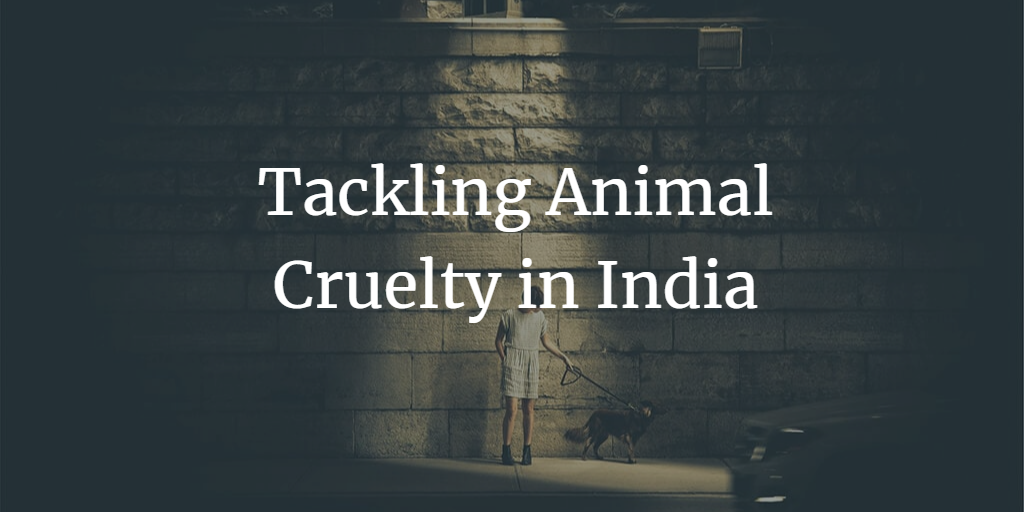Why Animal Cruelty In India Needs To Be Addressed Urgently? What Does The Law Say?

Table of Contents
Introduction
Why Animal Cruelty Needs Urgent Attention
Existing Legal Framework
The Prevention of Cruelty to Animals Act, 1960
Indian Penal Code
Wildlife Protection Act, 1972
Challenges in Addressing Animal Cruelty
Steps to Strengthen the Fight Against Animal Cruelty
Conclusion
Introduction
Animal cruelty is a pressing issue in India that requires immediate attention and action. Despite existing legal provisions to protect animals from abuse and neglect, incidents of animal cruelty continue to rise. This article discusses the urgent need to address animal cruelty in India, the current legal framework that aims to protect animals, and the necessary steps to strengthen the fight against animal abuse.
Why Animal Cruelty Needs Urgent Attention
Addressing animal cruelty is vital for several reasons:
Moral obligation: As humans, we have a moral obligation to protect and care for the well-being of animals who cannot protect themselves.
Environmental impact: Animal abuse and neglect can lead to ecological imbalances and have negative consequences on our environment.
Public health: Cruelty towards animals can contribute to the spread of diseases, posing a risk to public health.
Connection with other forms of violence: Research has shown that individuals who engage in animal cruelty may also exhibit violent behavior towards humans.
Existing Legal Framework
India has several laws in place that aim to protect animals from cruelty:
The Prevention of Cruelty to Animals Act, 1960
The Prevention of Cruelty to Animals (PCA) Act, 1960, is the primary legislation that addresses animal cruelty in India. The Act prohibits various forms of cruelty, such as overworking, beating, mutilating, or starving animals. It also provides for the establishment of the Animal Welfare Board of India, which is responsible for promoting animal welfare and ensuring compliance with the Act.
Indian Penal Code
The Indian Penal Code (IPC) contains provisions that penalize specific acts of animal cruelty. For instance, Section 428 and Section 429 of the IPC criminalize the act of killing or maiming an animal.
Wildlife Protection Act, 1972
The Wildlife Protection Act, 1972, is aimed at protecting India's wildlife, including endangered species. It regulates hunting, poaching, and the trade of wildlife and their derivatives.
Challenges in Addressing Animal Cruelty
There are several challenges in addressing animal cruelty in India:
Lack of awareness: Many people are unaware of the legal provisions protecting animals and the consequences of animal abuse.
Inadequate enforcement: Enforcement of existing laws is often weak, with insufficient resources allocated to animal welfare organizations and law enforcement agencies.
Lenient penalties: The penalties under the Prevention of Cruelty to Animals Act are relatively low, which may not serve as an effective deterrent for potential offenders.
Cultural practices: Certain cultural practices and traditions involving animal cruelty continue to persist, making it challenging to address these issues.
Steps to Strengthen the Fight Against Animal Cruelty
To effectively combat animal cruelty in India, several steps can be taken:
Raising awareness: Initiating public awareness campaigns to educate people about animal welfare laws and the consequences of animal cruelty can help change attitudes and behaviors.
Strengthening laws: Reviewing and amending existing laws to impose stricter penalties and ensure more comprehensive protection for animals is crucial.
Improving enforcement: Allocating more resources to animal welfare organizations and law enforcement agencies can help improve the enforcement of existing laws.
Promoting humane practices: Encouraging the adoption of humane practices in industries that involve animals, such as farming and entertainment, can contribute to reducing animal cruelty.
Conclusion
Addressing animal cruelty in India is an urgent issue that demands attention from society, lawmakers, and law enforcement agencies. With a strong legal framework in place and a collective effort to raise awareness, enforce laws, and promote humane practices, the fight against animal cruelty can be strengthened. Ultimately, safeguarding the welfare of animals is not only a moral obligation but also essential for maintaining a healthy and balanced ecosystem.


